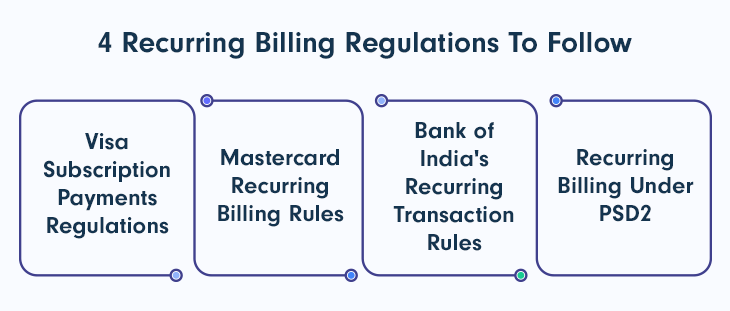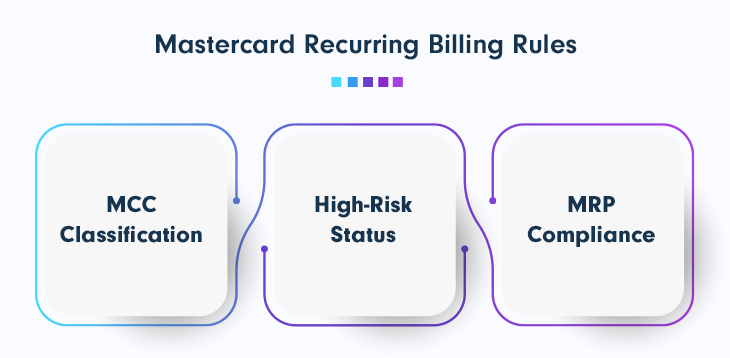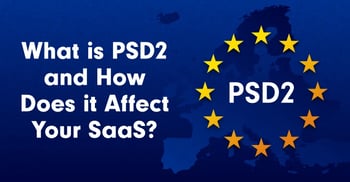4 Key Subscription Payment Regulations for SaaS

-
s
-
Main Challenges for SaaS and Digital Goods Providers:
Higher risk of chargebacks due to free trials or unclear terms.
The need for transparent user consent and simplified cancellation.
Key Requirements:
Clear trial terms and ongoing billing disclosures.
Immediate digital receipts before charges are applied.
Easy cancellation via email, SMS, or self-serve links.
Descriptive transaction labels
-
The subscription billing model has transformed the digital economy—especially for SaaS, software, and video game companies
As recurring revenue becomes the norm, navigating complex global payment processing SaaS regulations has never been more important. From Visa and Mastercard rules to PSD2 and India's strict mandates, subscription businesses face increasing compliance burdens that can stall growth if mishandled.
The solution? Partnering with a Merchant of Record (MoR)—a strategic move that streamlines compliance, manages risk, and helps you scale globally with confidence.
Why Subscription Models Dominate the Digital Economy?
-
If you don’t believe us, take a look at the results, which speak for themselves.
The subscription economy is projected to reach $1.5 trillion by 2025.
69% of U.S. households subscribe to at least one video streaming platform.
Subscription businesses grow 30–50% annually on average
This model is particularly powerful for:
SaaS companies offering monthly or annual licenses.
Game developers selling live services, content passes, or cloud gaming.
Software providers moving from perpetual licenses to recurring plans.
4 Key Subscription Payment Regulations You Must Follow
Staying compliant with recurring billing rules is critical. Here’s how global regulations impact your operations.

1. Visa Subscription Payment Regulations
-
Main Challenges for SaaS and Digital Goods Providers:
Higher risk of chargebacks due to free trials or unclear terms.
The need for transparent user consent and simplified cancellation.
Key Requirements:
Clear trial terms and ongoing billing disclosures.
Immediate digital receipts before charges are applied.
Easy cancellation via email, SMS, or self-serve links.
Descriptive transaction labels like “subscription” or “recurring” to reduce disputes.
The new Visa free trial billing rules require merchants to offer enhanced disclosures that ensure informed consent, which consequently leads to reduced chargeback rates.
Additionally, Visa regulations require that you offer:
Merchant details: name, address, phone, website, and billing information
Customer information: payment data used to pay for the subscription service
Payment currency
Enhanced and accurate product description
Trial period length, start, and end date
End trial notice, clarifying and confirming in writing that the cardholder will be charged once the trial period ends.
Initial transaction date and amount
Future payment dates and amounts
Cancelation rules and any helpful links
Written notification of account changes for existing subscribers
Written notification of how stored customer data will be used
Failure to comply: Chargebacks increase, potentially leading to fines and merchant account termination.
2. Mastercard Recurring Billing Rules
Mastercard has also updated its rules and regulations for subscription businesses, just as Visa did, with features like free trials and negative option billing. But they also included several provisions regarding payment processing for subscription businesses as well.
-
Impact on Software and Gaming Businesses:
Companies offering “negative option billing” (e.g., trials that auto-convert) must register in the Mastercard Registration Program (MRP).
High-risk MCC codes (like 5968) face extra monitoring and higher fees.
Key Requirements:
Disclose product description, billing cycle, refund policy, and cancellation methods.
Send billing reminders 7–30 days in advance (for sub-180-day cycles).
Notify users 3–7 days before the end of any trial period.

In addition to the above requirements, you’ll need to do the following:
Make sure you obtain the cardholder's consent regarding your terms and conditions.
Should the transaction authorization fail, the cardholder will need to be notified.
In case a customer’s account credentials are used to process payments across multiple merchant accounts, the merchant will need to obtain the cardholder’s consent.
If you are employing the negative option billing, you will be required to offer information regarding your free trial offering, including existing initial charges, trial length, price, and billing frequency.
Penalty for non-compliance: Risk of losing Mastercard processing capabilities, heightened scrutiny, or higher payment fees.
3. Bank of India's Recurring Transaction Rules
In the context of global commerce, even local laws can affect merchants around the world. GDPR is a good example. And so are the recurring billing rules implemented by the Reserve Bank of India, which is their central government bank.
Why This Matters Globally: Even non-Indian companies must comply if billing Indian customers.
-
Regulatory Highlights:
Mandatory e-mandate registration with 2FA (e.g., 3D Secure).
Advance 24-hour charge notification by SMS/email.
Charges over ₹15,000 require explicit re-authentication.
SaaS & Gaming Challenges:
Inability to auto-renew large-value plans without friction.
Higher drop-off during renewals due to multi-step verification.
Even though these rules are consumer-oriented, they received significant backlash from important corporations in the subscription industry, like Amazon and Netflix.
Non-compliance risks: Failed payments, refund obligations, or blocked recurring charges.
4. PSD2 & SCA in the EU
The European Union’s PSD2 directive enforces Strong Customer Authentication (SCA) to reduce fraud.
-
SCA Effects on Subscriptions:
Required for the first charge in a subscription.
Applies to amount or frequency changes.
Exemptions for:
- Fixed-value charges.
- Transactions <€30.
- Providers with low fraud rates (<€500 threshold).Key Pain Points:
Reduced conversion rates due to added friction.
Complex implementation across diverse banking networks.
eCommerce Partner
Thrive with the industry's most innovative all-in-one SaaS & Digital Goods solution. From high-performing payment and analytics tools to complete tax management, as well as subscription & billing handling, PayPro Global is ready to scale your SaaS.
Sell your SaaS globally with PayPro Global!
Payment Regulations Comparison
|
Regulation Source |
Trial Notification |
SCA Required |
Cancellation Rules |
High-Value Charge Rules |
Merchant Registration |
|
Visa |
Yes |
First charge only |
Easy opt-out required |
N/A |
No |
|
Mastercard |
Yes |
First charge + changes |
Easy opt-out required |
N/A |
Yes (MRP) |
|
RBI (India) |
Yes (24 hrs prior) |
Always for ₹15K+ |
Easy opt-out required |
Requires AFA |
No |
|
PSD2 (EU) |
No |
Yes (varies) |
N/A |
Exempt <€30 |
No |
The Real Cost of Non-Compliance for SaaS Businesses
If you're a SaaS provider, software developer, or game publisher, non-compliance can lead to:
Loss of processing privileges (Visa/Mastercard blocks).
Increased chargebacks and customer churn.
Regulatory fines or lawsuits in jurisdictions like the EU or India.
Frozen revenues from payment holds or reversed charges.
Is the Merchant Of Record the Right Solution?
The short, straightforward answer is yes.
Without a doubt, a Merchant of Record solution can be of great help when it comes to achieving global payment compliance for subscriptions. And this is why:
Extensive Local Expertise
Merchant of Record solutions have in-depth knowledge regarding regulatory compliance frameworks in different countries. Operating as a reseller, the Merchant of Record wil help your business meet local compliance standards while also keeping track of key business tasks.
Moreover, by shifting the liability for tax and payment tasks to the MoR, you are considerably reducing exposure to potential fines or legal issues.
Innovative Payment Technology
MORs have complex payment infrastructures already in place that can handle different currencies and alternative recurring transaction payment methods to boost your international authorization rates, keeping customers happy and revenues higher.
Additionally, their adaptive technology makes it easy to comply with subscription regulatory requirements in an efficient and simplified manner. Partnering with a Merchant of Record gives you access to their infrastructure, fast-tracking your business expansion.
Resource Effectiveness
Achieving global compliance can be a costly headache for SaaS businesses. Having to manage different processes for each territory you wish to expand in, keeping up with changes and updates, and performing regular audits will take significant resources away from your business.
With the help of a Merchant of Record, operational hurdles are efficiently handled by your partner, saving you time and resources and enabling your SaaS to operate successfully on a global scale.
However, at the end of the day, what matters most isn’t having a Merchant of Record on your side but more about finding the right service provider.
Because not all MORs are built the same, so make sure you choose the option that best suits your business’s requirements and needs.
Why PayPro Global is the Right MoR Partner
PayPro Global is more than a cross-border payments software —it’s a growth engine for your subscription business.
-
What Sets Us Apart:
19+ years of experience in SaaS, gaming, and software industries.
Fully managed Merchant of Record infrastructure.
Built-in support for subscription customization, invoicing, upsells, and renewals.
PCI-DSS Level 1 certification and GDPR-compliant data handling.
Real-time payment optimization thanks to 140+ currencies and 70+ payment methods.
MoR Benefits You’ll See Immediately:
Fewer compliance headaches
Better customer retention
Higher authorization rates
eCommerce Partner
Thrive with the industry's most innovative all-in-one SaaS & Digital Goods solution. From high-performing payment and analytics tools to complete tax management, as well as subscription & billing handling, PayPro Global is ready to scale your SaaS.
Sell your SaaS globally with PayPro Global!
Final Thoughts
If you're selling digital goods via subscriptions, compliance is no longer optional—it’s a competitive advantage.
Rather than risk regulatory pitfalls, chargeback losses, or stunted growth, partnering with a Merchant of Record like PayPro Global gives your team the freedom to focus on what truly matters—your product.
Book a call with PayPro Global today and expand your subscription business.
FAQs
What are the basic rules for subscription billing?
Most regulations require clear customer communication. You must disclose all recurring terms, send payment reminders before charging, and provide a simple, accessible cancellation process to remain compliant.
What is Strong Customer Authentication (SCA)?
SCA is a European rule requiring two-factor authentication to fight fraud. For subscriptions, it's mandatory for the first payment and for any changes to the price or billing schedule.
What happens if I ignore these payment rules?
Ignoring payment rules leads to serious consequences, including high chargeback rates, steep fines, and potentially being blocked by payment processors like Visa and Mastercard, which stops your revenue.
Ioana Grigorescu
Ioana Grigorescu is PayPro Global's Content Manager, focused on creating strategic writing pieces for SaaS, B2B, and technology companies. With a background that combines Languages and Translation Studies with Political Sciences, she's skilled in analyzing, creating, and communicating impactful content. She excels at developing content strategies, producing diverse marketing materials, and ensuring content effectiveness. Beyond her work, she enjoys exploring design with Figma.
-
1.Explore PayPro Global's Solutions: See how our platform can help you streamline your payment processing and boost revenue.
-
2.Get a Free Consultation: Discuss your specific needs with our experts and discover how we can tailor a solution for you.
-
3.Download our Free Resources: Access valuable guides, checklists, and templates to optimize your online sales.
-
4.Become a Partner: Expand your business by offering PayPro Global's solutions to your clients.
- Global payment restrictions place an increasing burden on subscription companies, which could impede their expansion.
- Violations of Visa, Mastercard, PSD2, and RBI regulations may lead to penalties, chargebacks, and the termination of processing rights.
- For subscription businesses, collaborating with a Merchant of Record (MoR) such as PayPro worldwide facilitates worldwide scalability, lowers risks, and streamlines compliance.
Get the latest news



